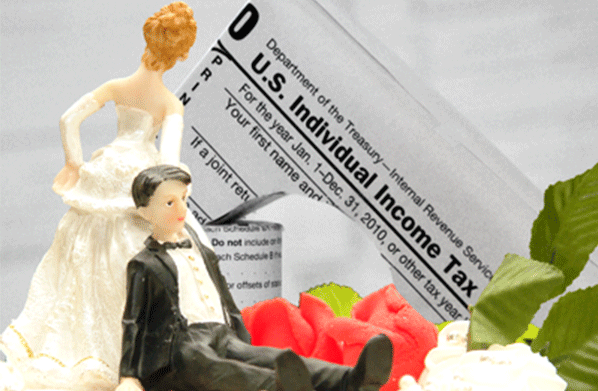President Obama wants African-American and Latino young men to succeed by teaching them the value of hard work, education and responsibility. He also spoke about the My Brother’s Keeper program as an effort “to encourage responsible fatherhood” because as Obama explained from his own experience, not having a father made life harder for him to succeed. He denied the effort was some “big new government program” (not because he doesn’t like those but because he knows the population has no appetite for another one). And he explained that his administration would only be looking at proven programs and proven solutions because they don’t have the money to do anything new. But among all the good words and good ideas offered up by the president, he neglected one word that is among the most “proven solutions” to the problem he’s describing: marriage. And by ignoring that word he also ignored one of the easiest and best ways he could help so many boys of color, which would be changing the tax code so it makes rational sense for their parents to get married.
In his speech, Obama explained how he’d gotten interested in the problem when he encountered a local Chicago program called “becoming a man.” At that meeting he discovered that he could relate all-too-well with the boys in the program. “I could see myself in these young men. And the only difference is that I grew up in an environment that was a little bit more forgiving. So when I made a mistake, the consequences were not as severe. I had people who encouraged me, not just my mom and grandparents, but wonderful teachers and community leaders.”
Nice rhetoric, but Obama is missing an important quality of his young life that is missing from so many of the boys he was describing. He had no father, but he did live in a married household with his grandparents.
Obama even noted the crisis during his White House address explaining that “if you're African-American, there's about a one in two chance you grew up without a father in the house. If you're Latino, you have about a one in four chance.” He also said that statistics show that “boys who grow up without a father are more likely to be poor.”
Obama went further on the importance of fathers declaring that “nothing keeps a young man out of trouble like a father who takes an active role in his son's life.” And who better to do that than the father married to the kid’s mother and living under the same roof?
As for the new initiative, Obama said that his presidential memorandum would direct “the federal government not to spend more money, but to do things smarter, to determine what we can do right now to improve the odds for boys and young men of color, and make sure our agencies are working more effectively with each other, with those businesses, with those philanthropies and with local communities to implement proven solutions.”
The benefit of marriage to low-income children is widely understood. But what is less clear is how much the tax code discourages those adults from marrying each other, from which their kids would derive the benefit.
As James Pethokoukis recently highlighted, a major study on economic mobility just concluded that “the fraction of children living in single parent households is the strongest correlate of upward income mobility among all the variables we explored.”
So what’s wrong with the tax code exactly?
Ed McCaffery, a law professor at the University of Southern California, explains that “the possibility of a tax penalty and other disincentives, such as benefits cuts that also phase out as incomes go up, can make marriage seem like a bad short-term bet for low-income Americans.” And the reason is that the poor, no less than the middle-class or wealthy, can be rational actors. If your public benefits are going to go down by getting married, why would you get hitched?
And then also, as AEI’s Robert Doar recently testified before Congress:
“Recognizing that married, two-parent families help poor children succeed, we must address policies that make marriage hard — especially among low-and middle- income Americans.
Marriage penalties can be especially discouraging for those individuals who have the least freedom to forego income. As Eugene Steuerle of the Tax Policy Center and colleagues have explored in detail, policies aimed at assisting low – and moderate – income households with children often penalize marriage.
Take this example: “A single parent with two children who earns $15,000 enjoys an EITC benefit of about $4100. The credit decreases by 21.06 cents for every dollar a married couple earns above $15040….[I]f the single parent marries someone earning $10,000, for a combined income of $25,000, the EITC benefit will drop to about $2,200. The couple faces a marriage tax penalty of…$1,900.”
Similar penalties are embedded in Medicaid, Temporary Assistance for Needy Families (TANF), food stamps, housing assistance, and child care — all of which apply to low-and moderate-income Americans.”
Taking the president at his word that he relates to all the boys in similar straits as he experienced, and accepting his conviction that he wants to help, why won’t he do the one thing that could effectively help, namely change the tax code to encourage poor folks to marry?
Follow Abby on Twitter.


